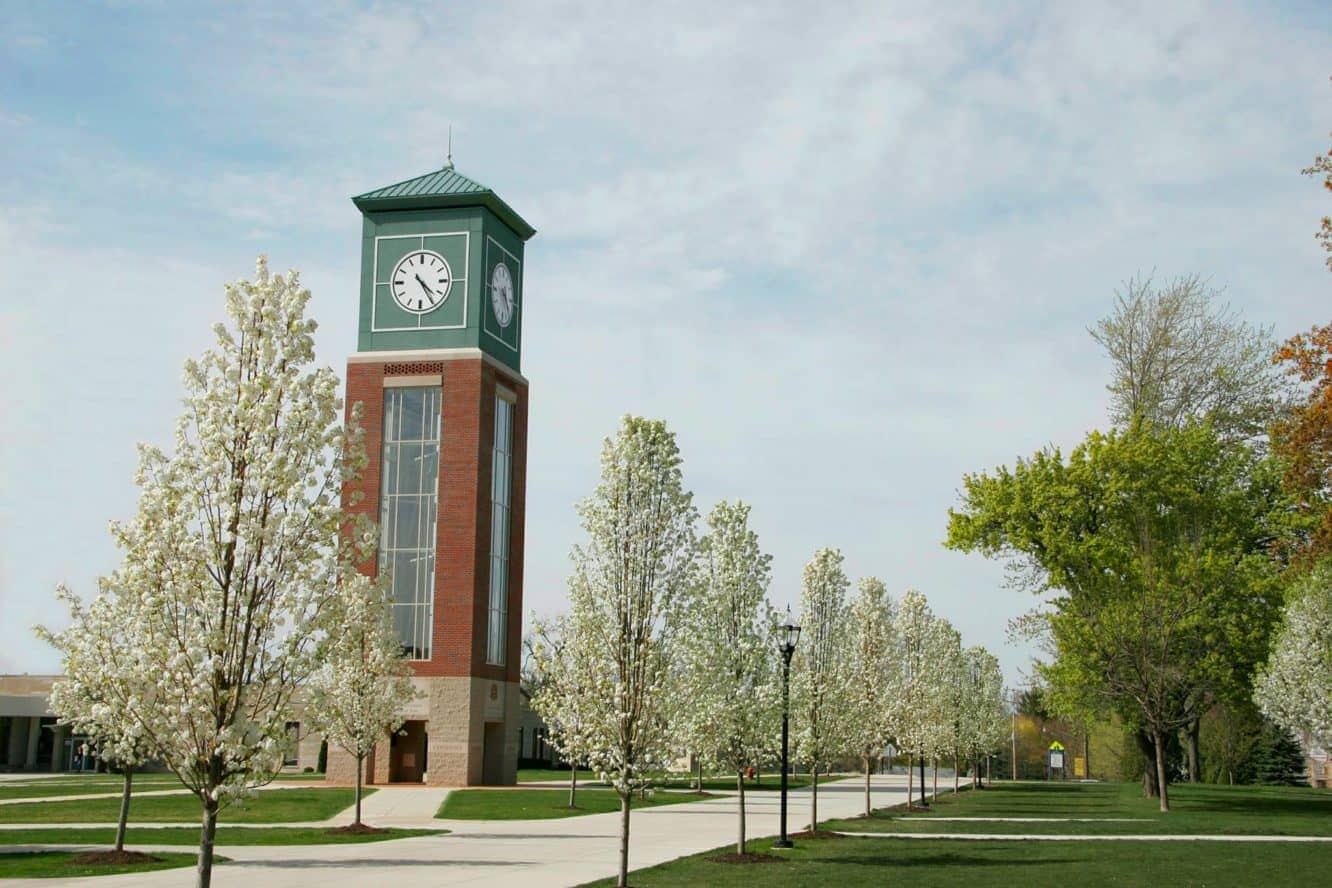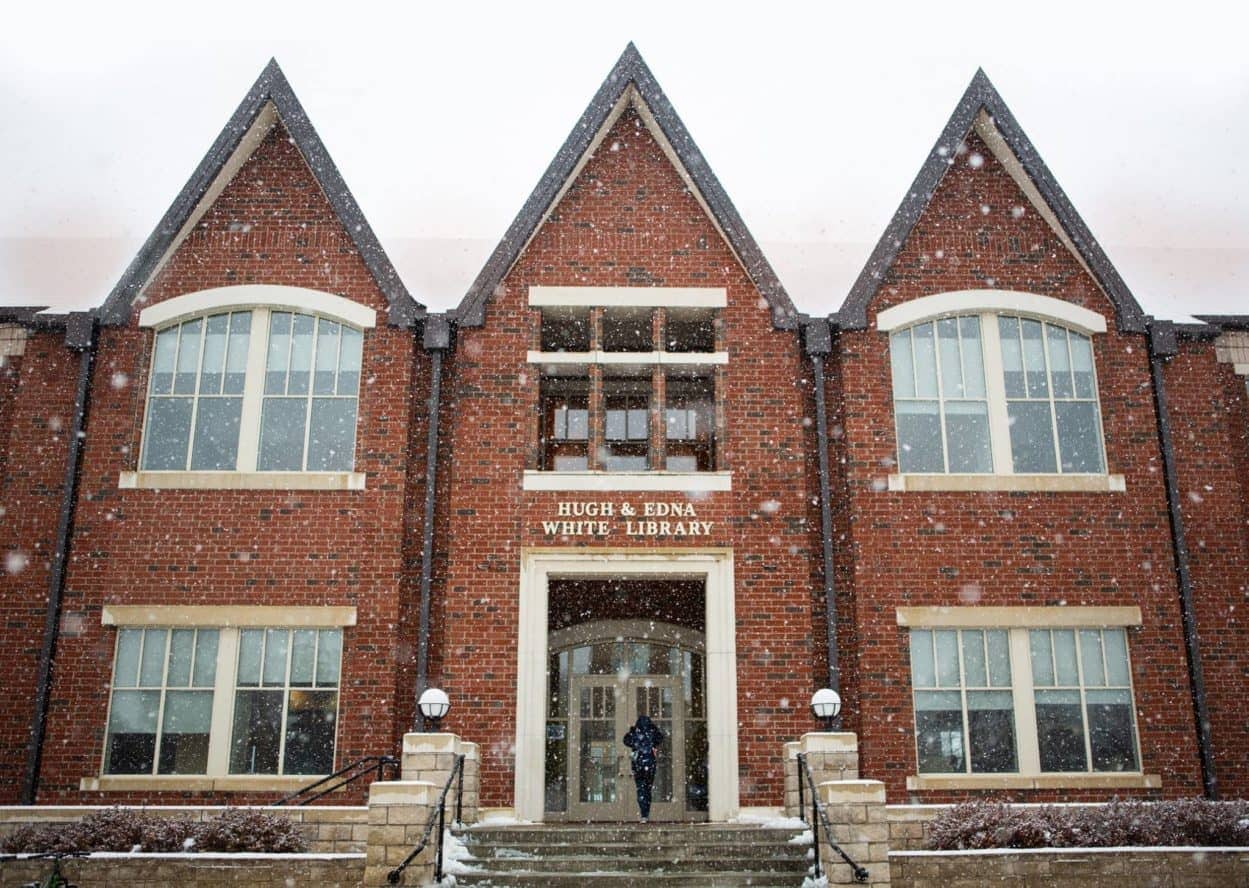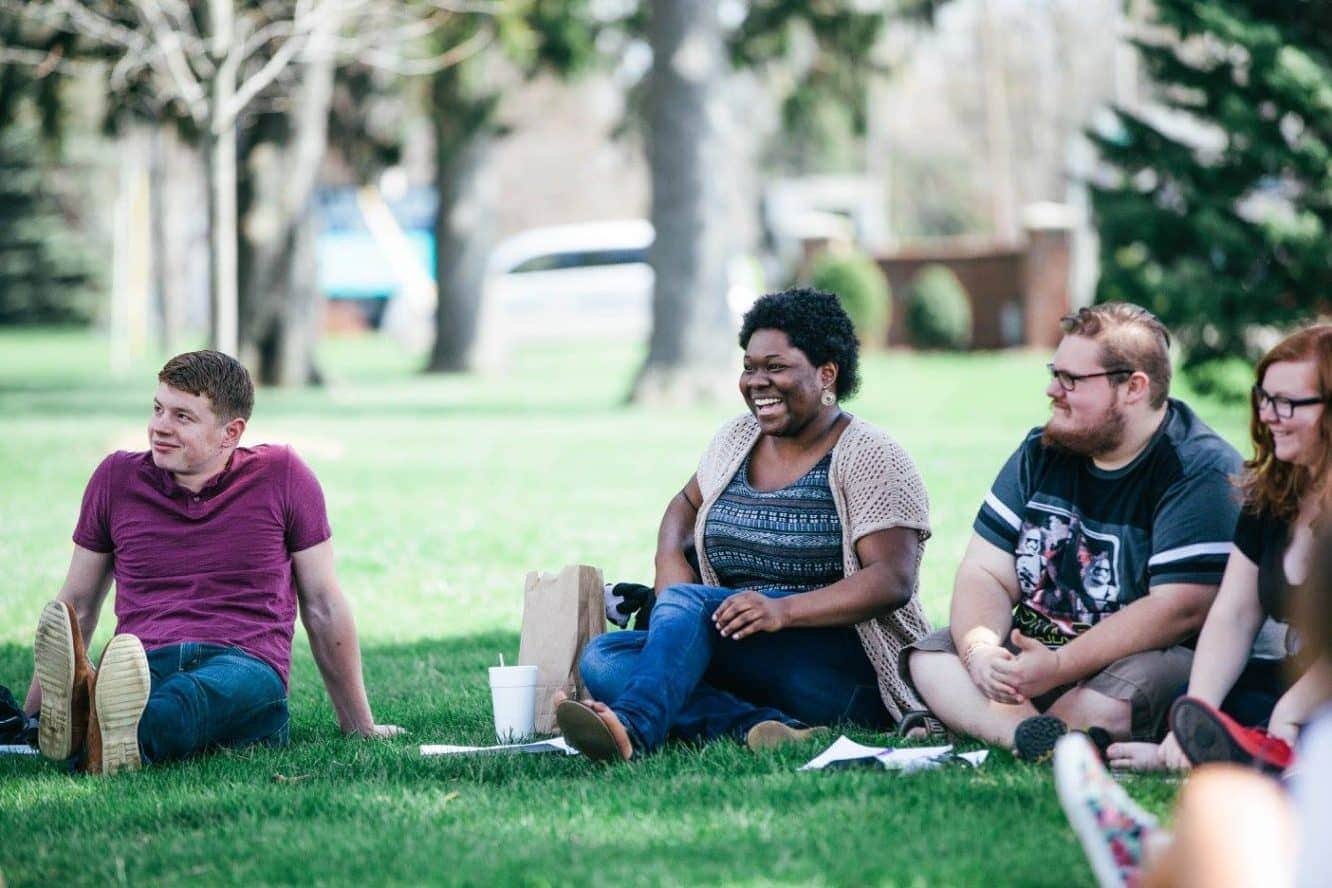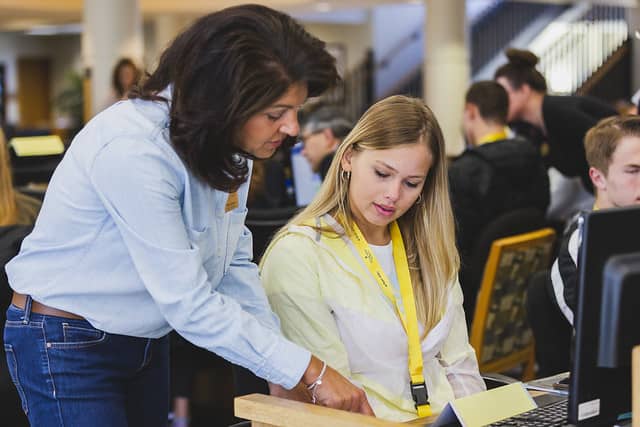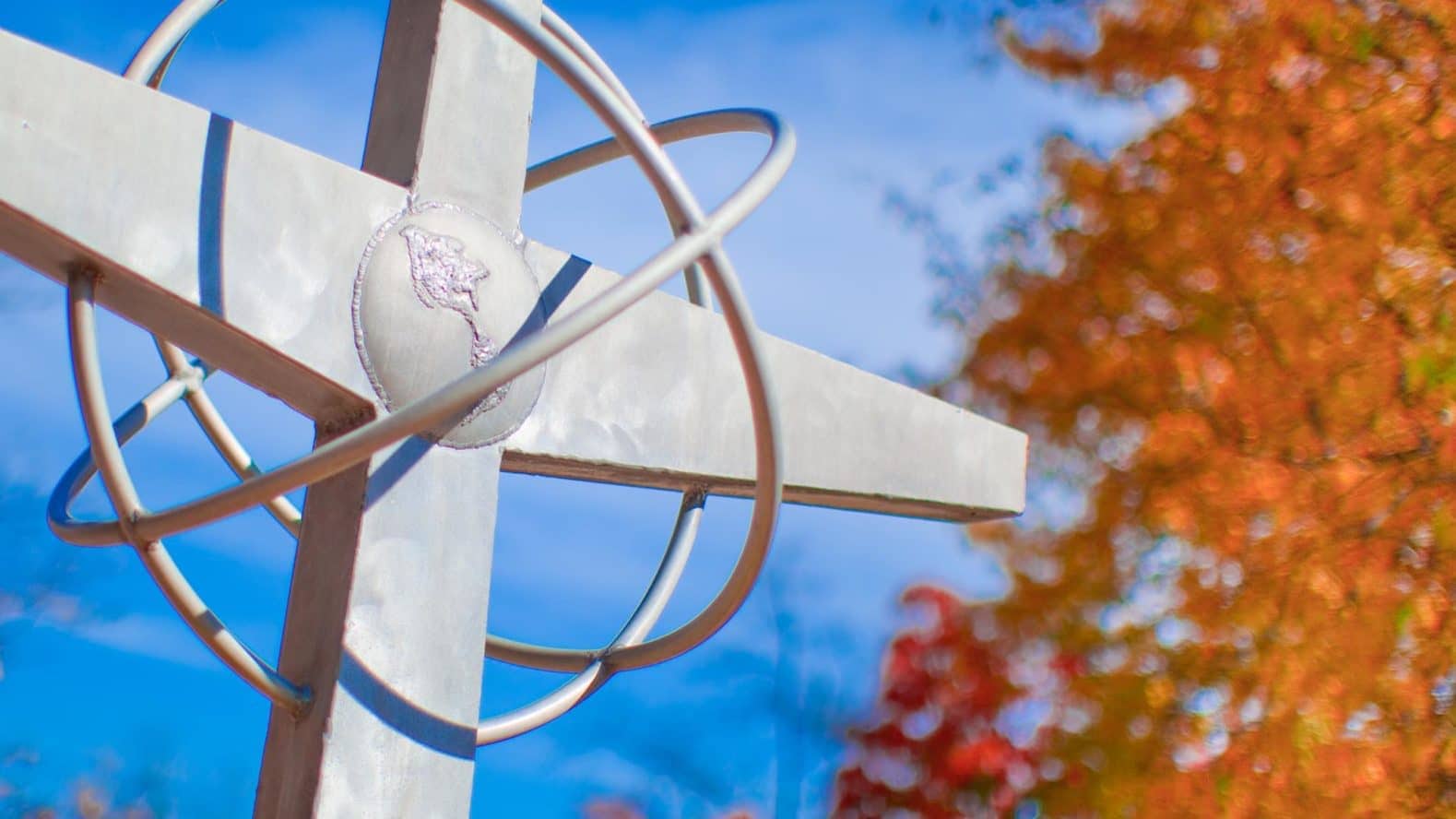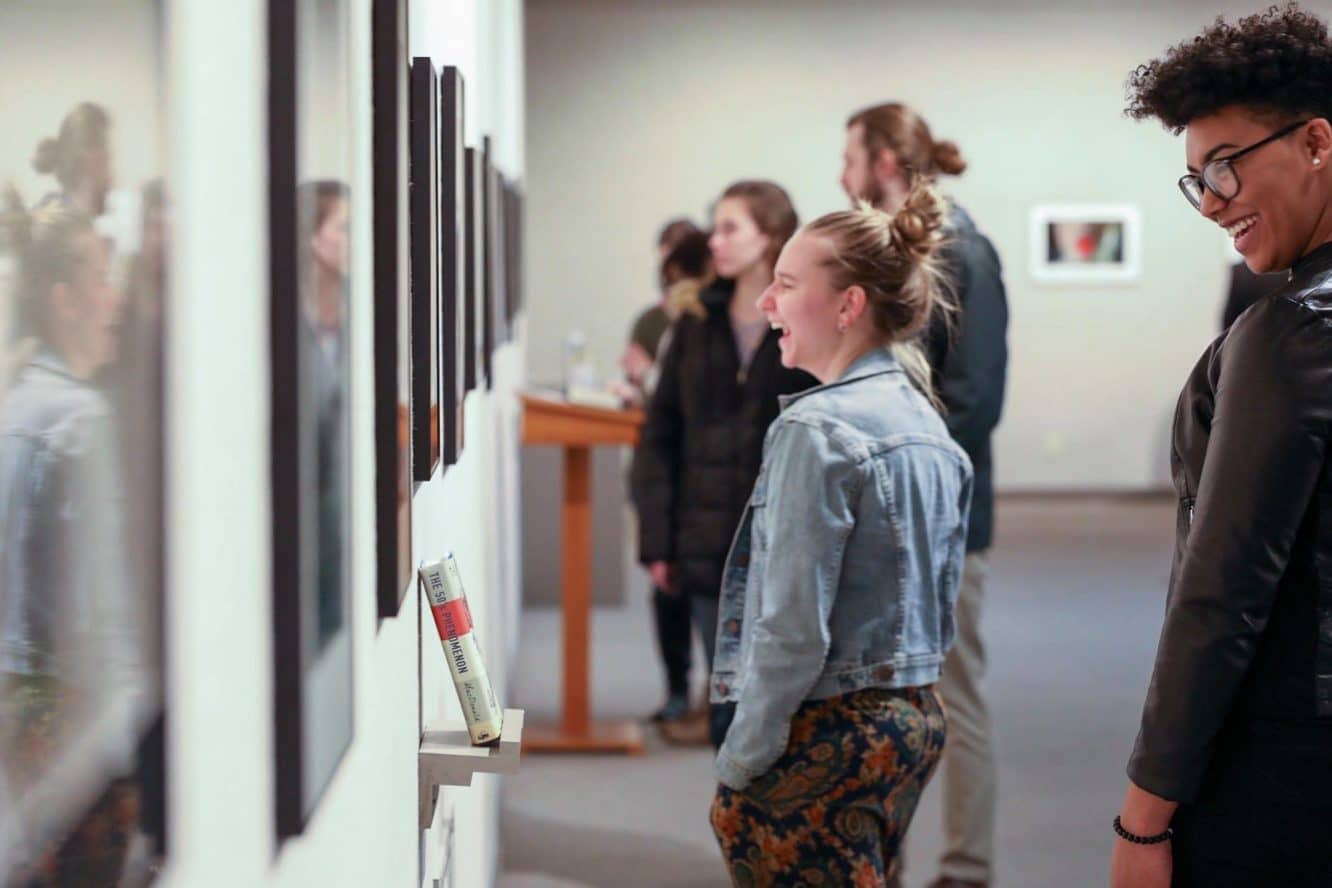Spring Arbor University
Spring Arbor, Michigan

At Spring Arbor University’s core is a dedication to help students pursue a life of wisdom, grounded in a Christian liberal arts education and the cultivation of academic and spiritual growth. Since its founding in 1873, Spring Arbor University (SAU) has developed this culture. That commitment continues today. “The Concept” guides the university, serving as the cornerstone of academic and spiritual life both on campus and beyond.
“Spring Arbor University is a community of learners distinguished by our lifelong commitment to the study and application of the liberal arts, total commitment to Jesus Christ as the perspective for learning, and critical participation in the contemporary world.”
Get to know Spring Arbor University
Benefits
Student Activities
- Campus Ministries
- Choral groups
- Concert band
- Drama/theatre
- International Student Organization
- Jazz band
- Literary magazine
- Model UN
- Music ensembles
- Musical theatre
- Pep band
- Radio station
- Student government
- Student newspaper
- Student-run film society
- Symphony orchestra
- Television station
- Yearbook
High-Impact Practices
- First-Year Seminars and Experiences
- Common Intellectual Experiences
- Learning Communities
- Writing-Intensive Courses
- Collaborative Assignments and Projects
- Undergraduate Research
- Diversity/Global Learning
- Service-Learning, Community-Based Learning
- Internships/Coops/Practicums
- Capstone Courses and Projects/Senior Experience
Campus Resources
- Career Services
- Writing Center
- Intercultural Advisors
- Fellowship Groups
- Academic Advisors
- Library Services
- Faculty Mentors
- Disability Services
- Health Services
- Academic Tutors
- Veteran Services
- Peer Mentors
- Counseling
College Highlights
A COMMUNITY OF LEARNERS
SAU students both live and learn in community. Whether they hear their favorite professor give a multidisciplinary lecture, take a day off from regularly scheduled classes to highlight a contemporary issue at the annual FOCUS series, or continue their classroom discussions in the dining commons, SAU students incorporate learning and understanding into their lives. The result of this is a student body dedicated to academic, spiritual, and social excellence, striving to pursue wisdom well beyond the classroom.
TOTAL COMMITMENT TO JESUS CHRIST
Spiritual life is a priority across campus. The faculty foster the rigorous classroom experience as an opportunity for growth in both wisdom and knowledge. Outside of the classroom, the entire student body gathers on Mondays and Wednesdays for chapel services, participating in worship and listening to engaging messages from a variety of speakers from across campus and the nation. Other worship opportunities include Worship Arts Vespers Experience (WAVE), which is led by worship arts majors. Students also take advantage of local ministry opportunities, small groups, and annual retreats in pursuit of deepening and strengthening their relationship with Christ.
CRITICAL PARTICIPATION
Whether students are volunteering for Spring Break mission trips, serving SAU’s Center for Autism Spectrum Enrichment, or raising funds and awareness for international justice programs, their heart for the Kingdom of God and the restoration of a broken world is readily apparent. SAU offers a number of opportunities for local and worldwide involvement, but the students themselves often take up worthwhile causes of their own volition, garnering support from their classmates and working to bring meaningful and redemptive change to the world.
CROSS-CULTURAL STUDIES
The contemporary world extends beyond national borders, and so SAU students are required to visit and study a culture outside of the United States. These cross-cultural studies trips last a minimum of three weeks, but can span an entire semester. More comprehensive than a mission trip, more contextual than a vacation, these journeys abroad afford students opportunities to experience life beyond borders and beyond themselves. They meet families, government officials, religious leaders, and other students as they learn to see the world with global eyes.
ENROLLMENT BY ETHNICITY
Non-U.S. Citizen: 1%
Hispanic/Latinx: 4%
Black or African American, non-Hispanic: 8%
White, non-Hispanic: 70%
Native/Indigenous American or Alaska Native, non-Hispanic: 0%
Asian, non-Hispanic: 1%
Native Hawaiian or other Pacific Islander, non-Hispanic: 0%
Two or more races, non-Hispanic: 3%
Race and/or ethnicity unknown: 12%
ENGAGED FACULTY
At Spring Arbor, faculty members do more than lecture; they participate in the lives of their students. Faculty serve as guides for students as they progress through academic and spiritual challenges. With a student-to-faculty ratio of 15:1, professors have time to give students the attention they need in order to succeed, transcending their offices and classrooms to become lifelong mentors and friends.
CORE PROGRAM
The CORE program forms the center of academic life at SAU. Beginning freshman year, students are introduced to the program within the framework of the liberal arts. As students progress, the liberal arts provide a foundation for the discussion of contemporary social issues and the Christian’s role in society. The program also provides a segue into college life, offering students a close-knit network of peers during their freshman year and encouraging a depth in discourse with classmates in subsequent years. The program includes four classes as well as a cross-cultural program and a preparation seminar.
POLING CENTER FOR GLOBAL LEARNING AND LEADERSHIP
Dedicated in 2008, the 38,000 square foot Poling Center for Global Learning and Leadership houses the Gainey School of Business, offices for the social sciences, classrooms, meeting areas, and a CP Federal Credit Union Trading Center. The facility is equipped with some of the same technology that is used daily on Wall Street and trains students for Series 7 certification, Bloomberg equities, and Bloomberg fixed income products. The CP Federal Credit Union Trading Center is one of only three trading rooms found at Michigan universities.
E.P. HART HONORS PROGRAM
The E.P. Hart Honors Program is highly selective and is designed to provide academically gifted students with an alternative general education curriculum. The program features collaborative research assignments with senior faculty, one-on-one mentoring, and personalized advising. The E.P. Hart Honors Program strives to instill in students the desire to pursue God’s calling through an exemplary application of the liberal arts within a Christian framework.
SPECIAL STUDY OPTIONS
Programs offered at this institution.
Accelerated program
Cross-registration
Distance learning
Double major
Dual enrollment
English as a Second Language (ESL)
Honors Program
Independent study
Internships
Student-designed major
Study abroad
Teacher certification program
Weekend college
COMMUNITY OF LEARNERS
Every month, SAU holds a Community of Learners seminar in which faculty members present extracurricular lectures on topics they have been researching. These lectures give students opportunities to explore topics outside of their majors and engage with their professors as fellow learners and academics.
FOCUS SERIES
Every spring, SAU students and faculty suspend classes for a single day in order to take an in-depth look at an issue that faces contemporary society. Noted speakers are invited to campus for keynote addresses, while faculty members prepare morning workshop seminars. Recent topics have included sex trafficking, social media, and food consumption.
NATURAL SCIENCE SEMINARS
Similar to Community of Learners events, the department of chemistry and biology hosts regular natural science seminars. Faculty, current students, and alumni often participate in these events, giving science and non-science students alike a glimpse into both on- and off-campus research projects.
STUDENT MEDIA
SAU’s student newspaper, “The Pulse,” gives aspiring writers, editors, photographers, and designers a sophisticated, practical outlet for their talents. The SAU short films class offers an experience so rewarding that video/film and drama students take part in it even when they are not taking the class for credit, causing it to double as a production club. The SAU literary journal, The Oak Tree Review, gives students a platform for their creative writing and poetry. SAU is also home to two radio stations in which where students produce award-winning broadcasting work alongside real professionals.
FINE ARTS EVENTS
Creativity is just as much of an academic endeavor as studying or researching. The SAU theater program hosts multiple plays and a show-stopping musical each year. The Ganton Art Gallery, one of the largest single-room galleries in Michigan, gives the community a look into both student and professional art, and White Auditorium is home to a breadth of musical performances.
SCHOOL LOCATION
Nestled within the town of Spring Arbor, Michigan, the 100-acre campus of Spring Arbor University embodies both the pastoral and the academic. It sits next door to the Spring Arbor Free Methodist Church. Nearby Jackson, MI, is home to a vibrant downtown, featuring distinct restaurants, coffee shops, boutique stores, and a historic theatre. Multiple dining and shopping options are available throughout Jackson.
ATHLETICS
NAIA Division II
Men’s sports: baseball, basketball, cross country, golf, soccer, tennis, track & field
Women’s sports: basketball, cross country, golf, soccer, softball, tennis, track & field, volleyball
Mascot: Cougar
Colors: blue and gold
RESIDENCE LIFE
Percent of students living on campus.
First-time, first-year (freshman) students: 92%
Undergraduates: 72%
Campus housing options.
Men’s dorms
Women’s dorms
Apartments for married students
Special housing for disabled students
Special housing for international students
Community homes on campus
Students graduate from SAU ready to serve as critical participants in the world, and 96% of recent graduates either employed or in graduate school. SAU grads dominate their fields as doctors, lawyers, teachers, counselors and leaders; 85% report employment in a field related to their major, or enrollment in graduate school.
But numbers are just numbers. Here are a few faces to put alongside them:
- Greg Bontrager ’83 is the chief operating officer of the American Cancer Society.
- Matinga Ragatz ’89 was named the 2010-11 Michigan Teacher of the Year.
- David Boss ’10 is a certified public accountant at Plante & Moran.
- Kate Walugembe ’03 founded Northern Lights Ministries, helping the neediest people in rural Uganda.
- Dave Sellers ’09 was recently awarded a National Science Foundation research fellowship.
- Vanessa (Vann ’08) Hartsell is the executive director of Ignite Life Ministries, serving at-risk communities in Las Vegas, NV.
- Rick Herter ’84 is an established aviation artist who has created commissioned paintings for the Pentagon and Smithsonian Air and Space Museum.
- Stephen White ’15 accepted a job with Microsoft as a software development engineer immediately after graduation.
Admission
ADMISSIONS FACTORS
Very Important
Rigor of secondary school record | Standardized test scores | Character/personal qualities
Important
Academic GPA
Considered
Class rank | Application Essay | Recommendation(s)
Interview | Extracurricular activities
Talent/ability | Religious affiliation/commitment | Level of applicant’s interest
TEST SCORES
Required
FRESHMAN PROFILE
SAT Evidence-Based Reading and Writing
25th Percentile: 490 | 75th Percentile: 600
SAT Math
25th Percentile: 490 | 75th Percentile: 590
ACT Composite
25th Percentile: 20 | 75th Percentile: 27
ACT Math
25th Percentile: 19 | 75th Percentile: 26
ACT English
25th Percentile: 21 | 75th Percentile: 25
Tuition & Cost
Tuition: $29,872
Fees: $600
Room: $4,840
Board: $5,616
Contact Spring Arbor University
Contact Admissions
www.arbor.edu/admissions/undergraduate
(517) 750-6468
admissions@arbor.edu
Campus Location
106 E. Main Street
Spring Arbor, MI 49283
(800) 968-0011
